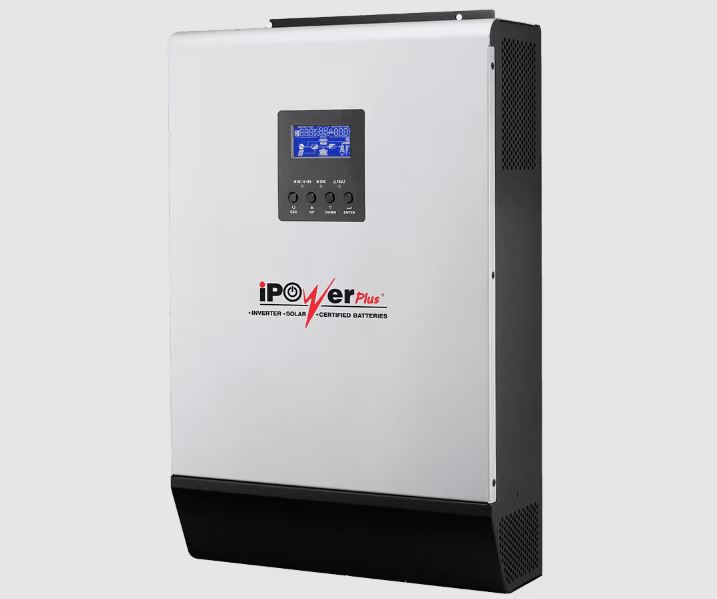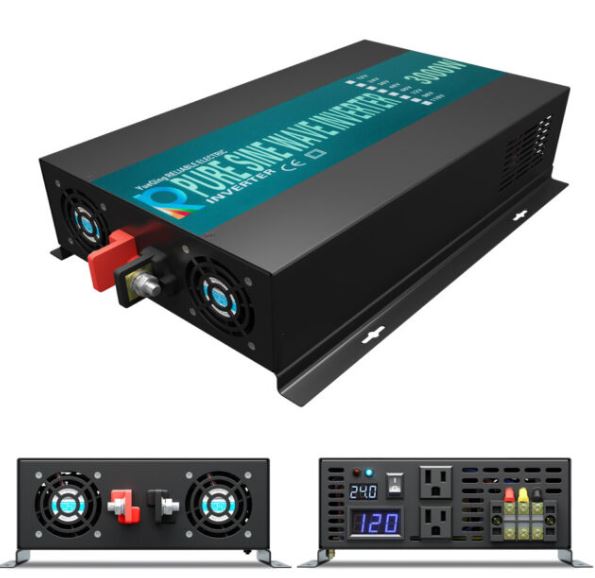Wondering what an inverter does? You’re on the right page. Here, you’ll find all the answers you need to understand the essence of an inverter and how it works.
An inverter is a device that plays a vital role in converting direct current (DC) power into alternating current (AC) power. This makes it compatible with various electrical appliances and devices. Keep reading to understand the functions and benefits of inverters.

Here’s the Answer to What an Inverter Does:
In simple terms, an inverter converts the type of electricity used in batteries, solar panels, or other DC sources into the type of electricity used in homes and businesses. In particular, inverters use electronic circuits to transform DC electricity, which flows in one direction, into AC electricity, which alternates direction periodically. This conversion allows DC-powered devices to operate using standard AC power.
Besides converting DC to AC, inverters generate a waveform that mimics the sinusoidal waveform (wavelike motion) of utility grid power. This ensures compatibility with sensitive electronic equipment and appliances that require stable and clean power.
Types of Inverters

There are several types of inverters available, each with unique features and applications. Here’s an overview of the most common types:
a. Stand-Alone (Off-Grid) Inverters
Stand-alone inverters are designed for off-grid applications where no utility power is available. These inverters typically work in conjunction with batteries and solar panels to provide independent power supply.
b. Grid-Tied (On-Grid) Inverters
Grid-tied inverters are connected to the utility grid and synchronize with the grid’s frequency and voltage. They allow solar or wind energy systems to feed excess power back into the grid, reducing electricity bills through net metering or feed-in tariffs.
c. Hybrid Inverters
Hybrid inverters combine the functionality of stand-alone and grid-tied inverters to enhance its performance. These particular inverters offer flexibility and versatility for both off-grid and grid-connected applications. They can intelligently manage multiple power sources, including solar, batteries, and the grid.
| You might want to know what a 1kva inverter can power.
What Inverters Are Used For
Inverters have a wide range of applications across various sectors. They are used for residential, commercial, industrial, and automotive needs. Here are some common uses of an inverter:
1. Backup Power
In residential and commercial settings, inverters are used to provide backup power during outages or emergencies. While they can be in different forms, battery-based inverters can automatically switch to battery power when the main power supply fails. This way, they help to ensure uninterrupted operation of essential devices.
2. Solar Energy Systems
Inverters are integral components of solar energy systems, where they convert the DC electricity generated by solar panels into AC electricity for use in homes and businesses. This hints at why many commercial solar panels come with a complementary inverter.
Grid-tied inverters also allow excess energy to be fed back into the utility grid for credit or compensation.
3. Off-Grid Living
In remote or off-grid locations where access to utility power is limited, inverters paired with batteries and renewable energy sources like solar or wind enable self-sufficient living. These systems provide reliable electricity for lighting, appliances, and electronic devices without relying on the grid.
4. Automotive Applications
In the automotive industry, inverters are also used in electric and hybrid vehicles to convert DC power from batteries or regenerative braking into AC power for driving motors. This enables smooth acceleration, regenerative braking, and efficient energy management.
Benefits of Using an Inverter

Here are some advantages of using an inverter:
a. Energy Efficiency
Inverters maximize energy efficiency by converting DC power to AC power with minimal loss and optimizing power output based on load demand. This reduces energy wastage and lowers electricity costs over time.
b. Power Backup
Another benefit of an inverter is its guarantee of power when the primary source is off. As stated earlier, in residential and commercial settings, inverters provide seamless power backup during grid outages, and ensure uninterrupted operation of critical appliances and equipment. This enhances safety, convenience, and productivity for users.
c. Renewable Energy Integration
Inverters facilitate the integration of renewable energy sources, such as solar and wind, into existing power systems. While this enables sustainable energy generation and reduces reliance on fossil fuels, it also contributes to environmental conservation and mitigates climate change.
d. Voltage Regulation
Additionally, some advanced inverters feature voltage regulation capabilities to stabilize AC output voltage within specified limits. This can protect sensitive electronic devices from voltage fluctuations and ensure consistent performance and longevity.
Related: What a 2.5kva generator can power
Final Note
In conclusion, an inverter is a versatile device that converts DC power into AC power, making it suitable for powering a wide range of electrical appliances and devices. From providing backup power during outages to enabling renewable energy integration and enhancing energy efficiency, inverters play a crucial role in modern electrical systems.
Whether for residential, commercial, industrial, or automotive applications, inverters offer numerous benefits that contribute to improved reliability, sustainability, and cost-effectiveness in power supply.
